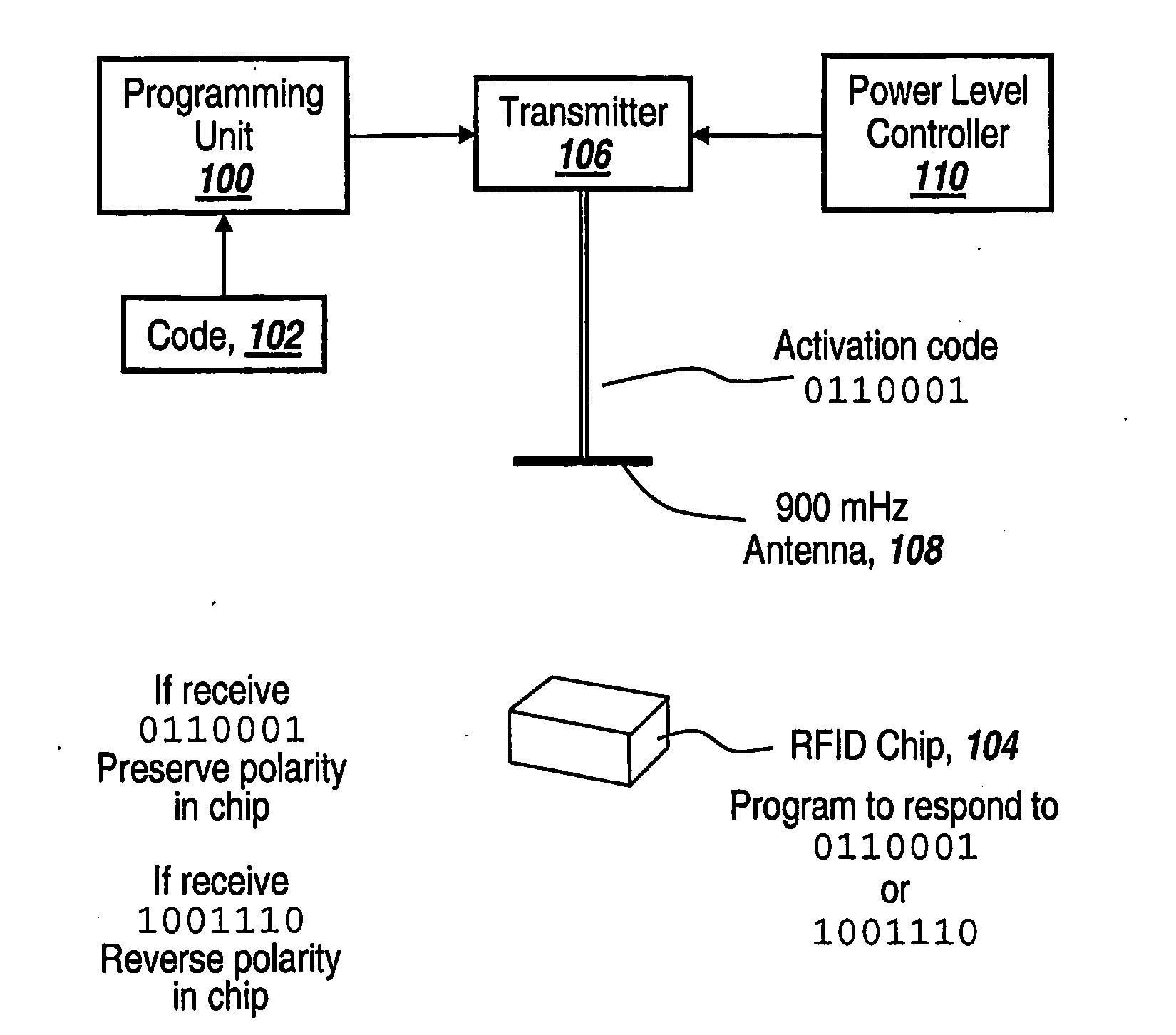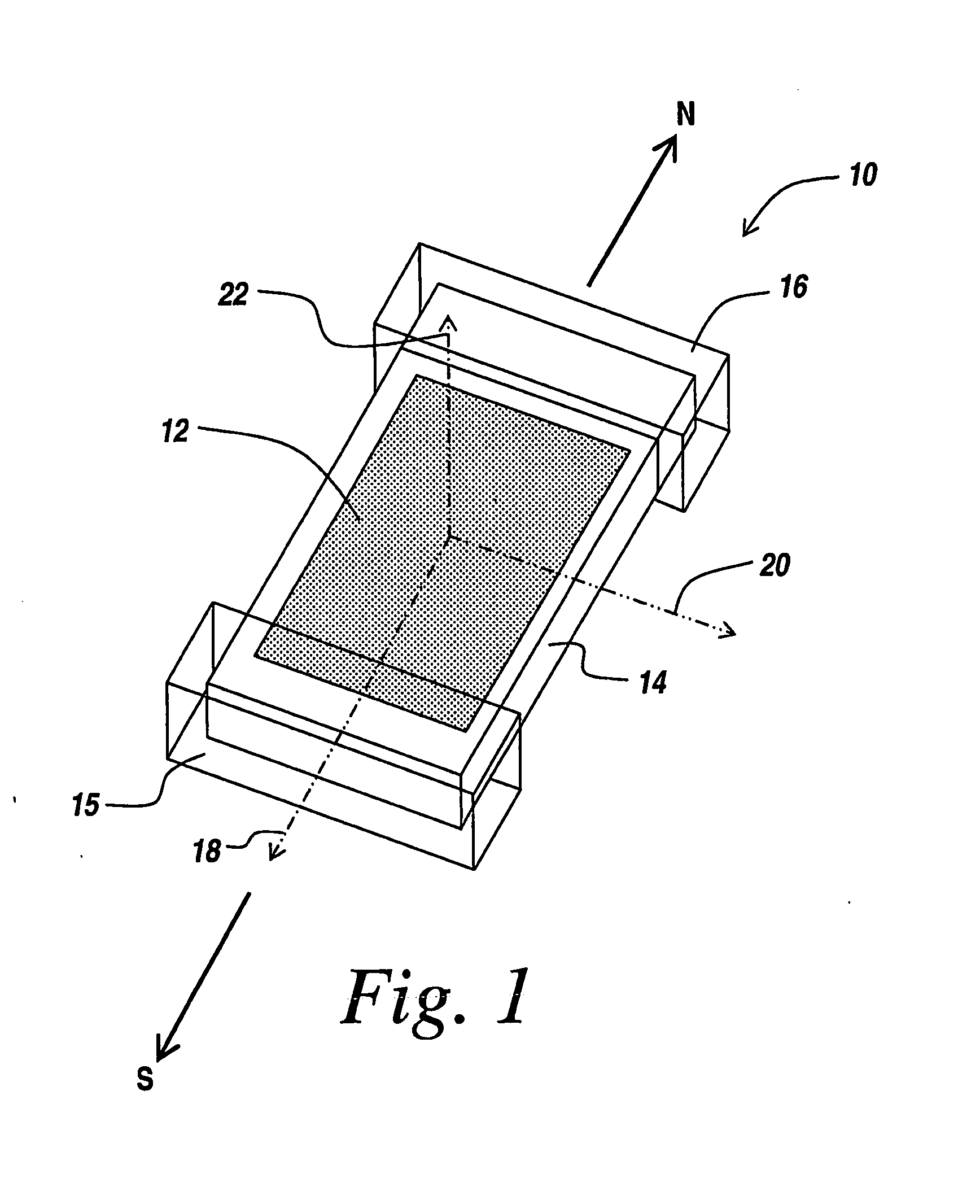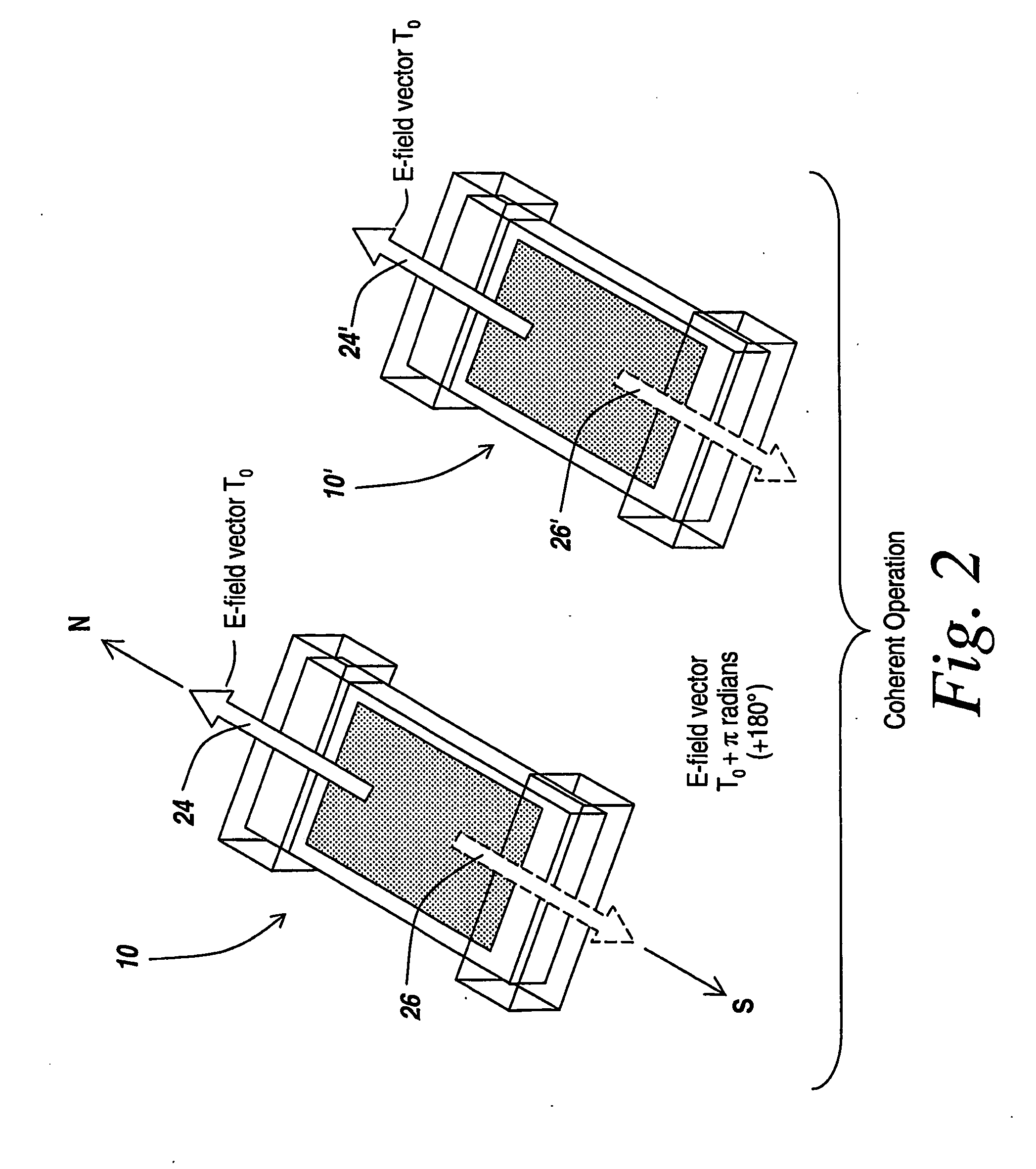Method And Apparatus For Coupling Multiple Microradios To an RFID Tag Antenna
a technology of microradios and antennas, applied in the direction of burglar alarm mechanical actuation, burglar alarm by hand-portable objects removal, instruments, etc., can solve the problems of significant signal cancellation, major cost of rfid tags, and cost associated with mounting and electrical connection
- Summary
- Abstract
- Description
- Claims
- Application Information
AI Technical Summary
Benefits of technology
Problems solved by technology
Method used
Image
Examples
Embodiment Construction
[0034]By way of further background and prior to describing the operation of the subject invention to select microradio chip orientation and polarity direction, RFID tags have been utilized extensively to be able to trace pallets from a point of shipment through a destination, with the RFID tags being passive devices that are read-out with RF energy, usually in the 900 MHz range. These passive devices are parasitically powered by the energy impinging upon the antenna of the tag that is harvested by the integrated circuits within the tag, with the result that the tag transmits the identity of the pallet in response to a probing signal.
[0035]While such RFID tags are now mandated for pallets in some industries, there is increased level of interest in item-level tagging, which involves placing a tag on the item itself as opposed to on a pallet of items.
[0036]However, in order to be able to make such tagging strategies possible for low-value items such as toothpaste and the like, techniqu...
PUM
 Login to View More
Login to View More Abstract
Description
Claims
Application Information
 Login to View More
Login to View More - R&D
- Intellectual Property
- Life Sciences
- Materials
- Tech Scout
- Unparalleled Data Quality
- Higher Quality Content
- 60% Fewer Hallucinations
Browse by: Latest US Patents, China's latest patents, Technical Efficacy Thesaurus, Application Domain, Technology Topic, Popular Technical Reports.
© 2025 PatSnap. All rights reserved.Legal|Privacy policy|Modern Slavery Act Transparency Statement|Sitemap|About US| Contact US: help@patsnap.com



